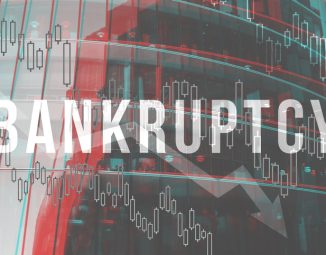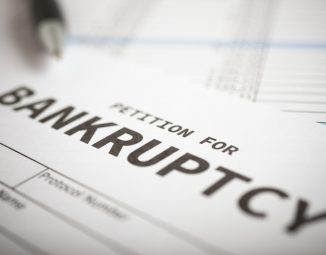Bankruptcy Courts Just Say No to the Marijuana Industry
Despite growing public acceptance of marijuana and the wide-spread passage of state laws legalizing marijuana for medicinal and even recreational purposes, marijuana remains a criminal offense under federal law which presents profound implications for those involved in the marijuana industry who seek the protections of the Bankruptcy Code. Even in a growth industry, there remains a need — by debtors and creditors alike — for an orderly process for liquidation or restructuring of failing businesses. To date, twenty-nine states and the District of Columbia have enacted medical marijuana legislation, with eight of those states also permitting its recreational use. However, federal law is clear in treating marijuana as an illegal substance and no change is in sight on the federal level. In fact, there are current indications that the Department of Justice may be reversing the laissez-faire federal response to state-sanctioned marijuana adopted under the Obama administration. What effect then does engaging in business activities legal under state but not under federal law have on access to the bankruptcy process?
There is a developing body of law addressing access to bankruptcy for state-licensed marijuana and related entities. Some issues have been definitively addressed while others remain ambiguous or unanswered. Courts have consistently barred companies or individuals that directly derive ongoing income from the cultivation or dispensing of marijuana from the protections of the Bankruptcy Code. Less certain, however, is the fate of those who, in varying degrees, do business with the marijuana industry.
General structure of the Bankruptcy Code.
Business entities utilize the provisions of chapter 11 to reorganize their debts while continuing to operate. An individual with regular income may use chapter 13 to repay all or a portion of his secured and unsecured debts. In both chapters 11 and 13, the debtor formulates a plan that must be proposed in good faith and not prohibited by law. As an alternative to reorganization, the liquidation provisions of chapter 7 are available to individuals and businesses where a trustee is appointed under the United States Trustee Program (“USTP”) to liquidate assets of the estate for distribution to creditors.
The right to bankruptcy relief, however, is not absolute. Bankruptcy cases may be dismissed for “cause,” which includes, among other things, the bad faith filing of a bankruptcy case. In addition to an improper motive, bad faith includes the filing of a plan that is incapable of being confirmed in compliance with the requirements of the Bankruptcy Code or existing law.
The Controlled Substances Act and the position of the United States Trustee.
The United States Trustee Program has been vigorous in objecting to the bankruptcy filings of businesses and individuals associated with marijuana businesses licensed and legal under state law but illegal under federal statute. The USTP’s response to marijuana-related bankruptcies has been guided by two objectives. First, in the words of the Executive Office for U.S. Trustees, “the bankruptcy system may not be used as an instrument in the ongoing commission of a crime, and reorganizations that permit or require continued illegal activity may not be confirmed.” It is a unique and unprecedented situation where businesses have sought the protection of the bankruptcy courts to continue operations that are illegal, at least in the eyes of the federal government. Typically, companies that have engaged in illegal activities have stopped doing business — or at least the illegal activities — before a bankruptcy filing. Companies such as Enron, Madoff Investment Securities and Tyco were able to utilize bankruptcy and related processes to deal with the aftermath of widespread illegal corporate activity. Second, the USTP does not want to expose bankruptcy trustees and other estate fiduciaries to the administration of tainted assets of the estate if doing so would cause them to violate federal law. In chapter 7 and 13 cases, trustees take possession and control over the assets of the estate which, in the context of a cultivator or dispensary, would directly involve the trustee in the commission of a federal crime.
At present, and for the foreseeable future, marijuana is illegal under federal law. Enacted in 1970, the Controlled Substances Act, 21 U.S.C. § 801, et seq. (“CSA”), embodies the federal program to classify and regulate the manufacture, distribution and use of certain substances. Marijuana falls under Schedule I of the CSA, which is reserved for those drugs considered to have a high potential for abuse and that have no accepted medical benefits. 21 U.S.C. § 812. The illegality under federal law of a business that cultivates and sells marijuana is clear as it is unlawful under the CSA “for any person knowingly or unintentionally to manufacture, distribute, or dispense, or possess with intent to manufacture, distribute, or dispense, a controlled substance.” 21 U.S.C. § 841(a)(1).
The USTP has taken the position that there is no distinction under the CSA between the seller or grower of marijuana and businesses that provide goods or services to marijuana companies. For example, with respect to landlords that lease space utilized by marijuana companies, it is unlawful to “manage or control any place, whether permanently or temporarily, either as an owner, lessee, agent, employee, occupant, or mortgagee, and knowingly and intentionally rent lease profit from, or make available for use, with or without compensation, the place for the purpose of unlawfully manufacturing, storing, distributing, or using a controlled substance.” 21 U.S.C. § 856. Further, the CSA makes it a crime to sell or offer for sale any drug paraphernalia, which is defined to include, among other things, “equipment, product, or material or any kind which is primarily intended or designed for use” in manufacturing a controlled substance. In response to the Congressional intent articulated in the CSA, the USTP has consistently sought the dismissal of bankruptcy petitions filed by growers and dispensers of marijuana as well as certain ancillary enterprises that provide goods and services to such marijuana businesses.
Current case law is definitive in prohibiting business bankruptcy access to direct growers and dispensaries but becomes hazy with respect to individuals and downstream businesses more ancillary to the industry.
Uniform dismissals of bankruptcy cases filed by growers and dispensaries.
With few exceptions, bankruptcy courts have been uniform in dismissing bankruptcy cases filed by state-sanctioned marijuana growers and dispensaries. Companies or individuals that directly derive their income from the manufacturing, distributing, dispensing or possessing of marijuana are ineligible for bankruptcy relief.
The Tenth Circuit Bankruptcy Appellate Panel in Arenas v. United States Trustee (In re Arenas), 535 B.R. 845 (10th Cir. B.A.P. 2015), affirmed the dismissal of a chapter 7 debtors’ case by answering the question: “Can a debtor in the marijuana business obtain relief in the federal bankruptcy court?” with a resounding “No.” The husband-and-wife debtors, licensed in Colorado to grow and dispense marijuana, owned a building where one unit was used for marijuana cultivation and the other unit was rented to a dispensary. After litigation with their renters resulted in a state court judgment against them, the Arenases filed a chapter 7 petition that they later attempted to convert to chapter 13. The United States Trustee objected to the conversion motion and instead asked that the case be dismissed. The bankruptcy court found that even though the debtors’ conduct was legal under Colorado law, it violated the federal CSA. If conversion to chapter 13 were permitted, the proposed reorganization would be funded from profits from ongoing criminal activity under federal law and would necessarily involve the chapter 13 trustee administering and distributing funds derived from the debtors’ violation of the CSA. Because any chapter 13 plan proposed by the debtors would be executed by unlawful means, the bankruptcy court was unable to find that a plan could be proposed with the requisite good faith and not by any means forbidden by law and denied the motion to convert.
Further, the bankruptcy court determined that remaining in a chapter 7 proceeding was not a viable option for the debtors since it would be impossible for the chapter 7 trustee to administer the Arenases’ estate because selling and distributing the proceeds of the marijuana assets would constitute federal offenses. The bankruptcy court rejected the debtors’ argument the trustee could abandon the illegal marijuana leaving them eligible for chapter 7 relief. The court reasoned that even if the tainted marijuana assets were abandoned, the debtors would retain their business after exposing the trustee to substantial risk, provide the creditors with little or no recovery, and receive a discharge, protected all the while from their creditors’ collection efforts by the automatic stay and then the discharge injunction. The bankruptcy court viewed this as a prejudicial delay that amounted to cause for dismissal.
The potential for forfeiture of assets that would be used to fund a chapter 11 plan has been cited as a ground for dismissal. A marijuana dispensary was denied chapter 11 relief in In re Mother Earth’s Alternative Healing Coop., Inc., Case No. 12-10223, Docket No. 54 (Bankr. S.D. Cal. Oct. 23, 2012), where the court found that the funding source of the plan was subject to forfeiture and therefore illusory. Due to the federal illegality of the business, the debtor was unable to propose a confirmable plan in good faith and not prohibited by law. The impossibility of the debtor proposing a viable plan or reorganization reflected its bad faith filing and constituted cause for the dismissal of the case.
Despite these overall prohibitions, some courts have shown a willingness to make chapter 13 relief available to individual debtors who stop their marijuana operations and are able to fund a plan with untainted income.
In In re Jerry L. Johnson, 532 B.R. 53 (Bankr. W.D. Mich. 2015), a licensed grower and seller of medical marijuana filed a chapter 13 bankruptcy to prevent the foreclosure of his house. Mr. Johnson was a partially-disabled, 60-year-old man who, as a state-licensed caregiver, grew medical marijuana on a small scale in the basement of his house for three patients. Only half his income was from the sale of marijuana with the remainder coming from Social Security disability benefits. The UST filed a motion to dismiss the bankruptcy case that was filed to prevent the foreclosure of Mr. Johnson’s house. The debtor argued that his plan would be funded exclusively by his Social Security income and not from income derived from medical marijuana sales. The court held that, notwithstanding that the debtor’s proposed chapter 13 plan payments would be from an “untainted” source, the debtor’s continuing operation of a marijuana business, even if the income were segregated, would require the court, the trustee, and even the debtor (who under chapter 13 retains property of the estate) to violate federal law. Perhaps swayed by the sympathetic circumstances of the debtor, rather than immediately dismissing the case, the court presented the debtor with the opportunity to remain in bankruptcy by discontinuing his medical marijuana business. After complying with the court’s directives by immediately ceasing the cultivation, sale or distribution of marijuana and by abandoning as an estate asset and destroying all marijuana plants in his possession, Mr. Johnson’s plan was confirmed.
In a similar vein, the debtor in In re McGinnis, 453 B.R. 770 (Bankr. D. Or. 2011), filed a chapter 13 plan that proposed plan payments to come from three sources: 1) a warehouse that would be leased to medical marijuana growers; 2) profits the debtor hoped to obtain from his own medical marijuana operation, and 3) rental income from a commercial property in Arizona, housing a number of tattoo artists. Because the debtor’s plan depended on income that violated federal law, the court determined that the plan could not meet the requirements of 11 U.S.C. § 1325(a)(3). However, rather than immediately dismissing the case outright, the court gave the debtor an opportunity to submit a compliant plan within 28 days or face dismissal or conversion to chapter 7. The bankruptcy court did not specify how the debtor could formulate an acceptable plan. However, the debtor never filed an amended plan and elected to dismiss his case.
Unlike the court in In re Arenas, which concluded that abandonment of marijuana assets would not preserve relief under chapter 7, the court in In re Wright, Case No. 07-10375, Docket No. 32 (N.D. Cal. Aug 3, 2007), denied confirmation of a chapter 13 plan of a marijuana cultivator but extended an opportunity to pursue a chapter 7 case, reasoning that the mere fact that a trustee cannot liquidate the debtor’s assets does not render ineligibility for chapter 7 relief.
Landlords to the marijuana industry have been denied access to bankruptcy.
While the UST’s opposition to bankruptcy access for companies directly involved in the cultivation and distribution of marijuana is hardly surprising, the UST regularly objects to the standing of entities that transact business with the industry, including landlords. Under the CSA there is no distinction between a seller or grower of marijuana and those downstream businesses that transact with the industry, such as landlords renting space to the seller or grower. See 21 U.S.C. § 856 (making it illegal to manage or control any place as an owner or lessee, agent, employee, occupant, or mortgagee, and knowingly and intentionally rent, lease, profit from, or make available for use for the purpose of unlawfully manufacturing, storing, distributing, or using a controlled substance).
Landlords that knowingly rent space used by others for cultivation or the retail sale of marijuana face the dismissal of their bankruptcy petitions. In In re Arm Ventures, LLC, 564 B.R. 77 (Bankr. S.D. Fla. 2017), the owner of a single commercial property sought bankruptcy protection to forestall foreclosure by its secured lender. The debtor proposed a chapter 11 plan that would be funded by a tenant that was engaged in manufacturing medical marijuana. The bankruptcy court gave the debtor the opportunity to propose a plan that was not reliant on funding from a marijuana source. Unable to do so, the court dismissed the case for cause under 11 U.S.C. § 1112(b)(1) because it was filed in bad faith.
A landlord who derives only a portion of its income from leasing premises used by its tenants for marijuana cultivation and sales may nevertheless be precluded from bankruptcy protection. A Colorado landlord that received only about 25% of its income from a tenant who used the space to cultivate marijuana faced the dismissal of its bankruptcy case in In re Rent-Rite Super Kegs, 484 B.R. 799 (Bankr. D. Col. 2012). The court found that the landlord’s lease of property, knowing that it would be used for an illegal purpose, violated federal law and constituted “cause” to dismiss since the plan could not be proposed in good faith and not by any means forbidden by law. The debtor’s decision to continue renting space to tenants who were violating the CSA placed the debtor’s collateral at risk because federal law allowed the federal government to seize property that was being used for illegal purposes. Because of the risks associated with the marijuana tenant, the bankruptcy court held that the debtor’s continuing lease with the marijuana entity constituted “gross mismanagement of the estate” and was further cause to dismiss under 11 U.S.C. § 1112(b)(4)(B).
Denial of bankruptcy relief to ancillary businesses.
In addition to the denial of bankruptcy relief to businesses and individuals who are directly involved in the continuing cultivation or sale of state-sanctioned marijuana and landlords who knowingly rent space used for such purposes, downstream entities that provide goods and services to the marijuana industry may also find themselves blocked from access to bankruptcy.
An involuntary bankruptcy petition filed against a company that provided management services and licensed trademark and other intellectual property to a medical marijuana dispensary was dismissed by the bankruptcy court because its assets were marijuana related. See In re Medpoint Management, LLC, 528 B.R. 178 (Bankr. D. Ariz. 2015). Arizona law requires medical marijuana dispensaries to operate on a nonprofit basis. This requirement has resulted in a proliferation of dispensary-management companies which serve as repositories of dispensary revenues enabling the dispensaries to maintain their nonprofit nature. Medpoint formerly managed the marijuana business, business relationships and cultivation operations of the dispensary until the service agreement was terminated but still licensed, as of the filing of the involuntary petition, trademark and intellectual property used by the dispensary for marketing. The involuntary petition was filed by entities that had loaned money to Medpoint and who were parties to certain asset purchase and consulting agreements. Medpoint filed a motion to dismiss the involuntary petition.
Adopting the analysis of Arenas, the court in Medpoint dismissed the involuntary petition due to the impossibility of lawfully administering the assets in bankruptcy by concluding that a chapter 7 trustee could not take control of Medpoint’s property without himself violating § 856(a)(2) of the CSA. The court also questioned whether Medpoint’s intellectual property licensing revenues could be forfeited and whether its business management services made it guilty of the facilitation of a crime under the CSA. See Deputy A.G. James M. Cole, U.S. DOJ, Memorandum at 2 (June 29, 2011) (“Persons who are in the business of cultivating, selling or distributing marijuana, and those who knowingly facilitate such activities, are in violation of the Controlled Substances Act, regardless of state law.”). Further, the court surmised that through its management activities, Medpoint could potentially be guilty of violating the CSA under an accomplice theory of liability. See 18 U.S.C. § 2(a) (establishing aiding and abetting liability for crimes against the United States). Finally, in dismissing the bankruptcy case, the court turned a disapproving eye towards the petitioning creditors themselves, observing that they acted with unclean hands by their knowing involvement with a company that engaged in activity illegal under federal law.
Conclusions and cautionary tales.
The basis for the dismissal of Medpoint should give pause to any business that is considering providing products or services to marijuana growers or retailers. It is unclear at this point what would constitute aiding and abetting or facilitation in violation of federal law. Medpoint’s entire business was dedicated to serving the dispensary and there was overlapping ownership between the entities. Would the same result occur if the ancillary business has no ownership ties to the marijuana industry and has non-targeted and sporadic sales to a cultivator? For example, would a hardware store that knowingly sells general purpose gardening supplies used for marijuana cultivation risk a finding of facilitating, aiding or abetting? For that matter, would the owner of a hundred-unit apartment building in a state that permits recreational use of marijuana be deprived of the protections of bankruptcy because just one residential tenant openly possessed and used marijuana in his apartment? The actual owners of marijuana businesses have been barred from chapter 13 relief due to concerns of that the source of plan payments would be derived from illegal activity. Would a security guard or a janitor employed by a cultivation enterprise be eligible for chapter 13 bankruptcy to prevent the foreclosure of his house? Depending on how far the USTP decides to push the boundaries of bankruptcy ineligibility, these questions and more will have to await judicial determination.
This article primarily focused on the eligibility of a marijuana-related entity to be a debtor in a bankruptcy case. However, case law has yet to address marijuana businesses as creditors and whether they will be permitted allowed claims and receive distribution in bankruptcy cases debtors unrelated to the marijuana industry.
As the industry expands and becomes further entrenched, there will be an increasing need for a predictable process, for debtors and creditors alike, to reorganize or provide an orderly liquidation of troubled or failed marijuana business. Absent an unlikely change to federal law, bankruptcy simply will not be an available option for such businesses. Existing state statutes provide for receiverships, assignments for the benefit of creditors or corporate dissolution. However, these state statutes typically lack the comprehensive nature and developed body of law of the Bankruptcy Code. Some states are beginning to fill this void by creating statutory framework to address these issues. Until the law becomes more settled, those involved in or who do business with the state-sanctioned marijuana industry should proceed with caution.





